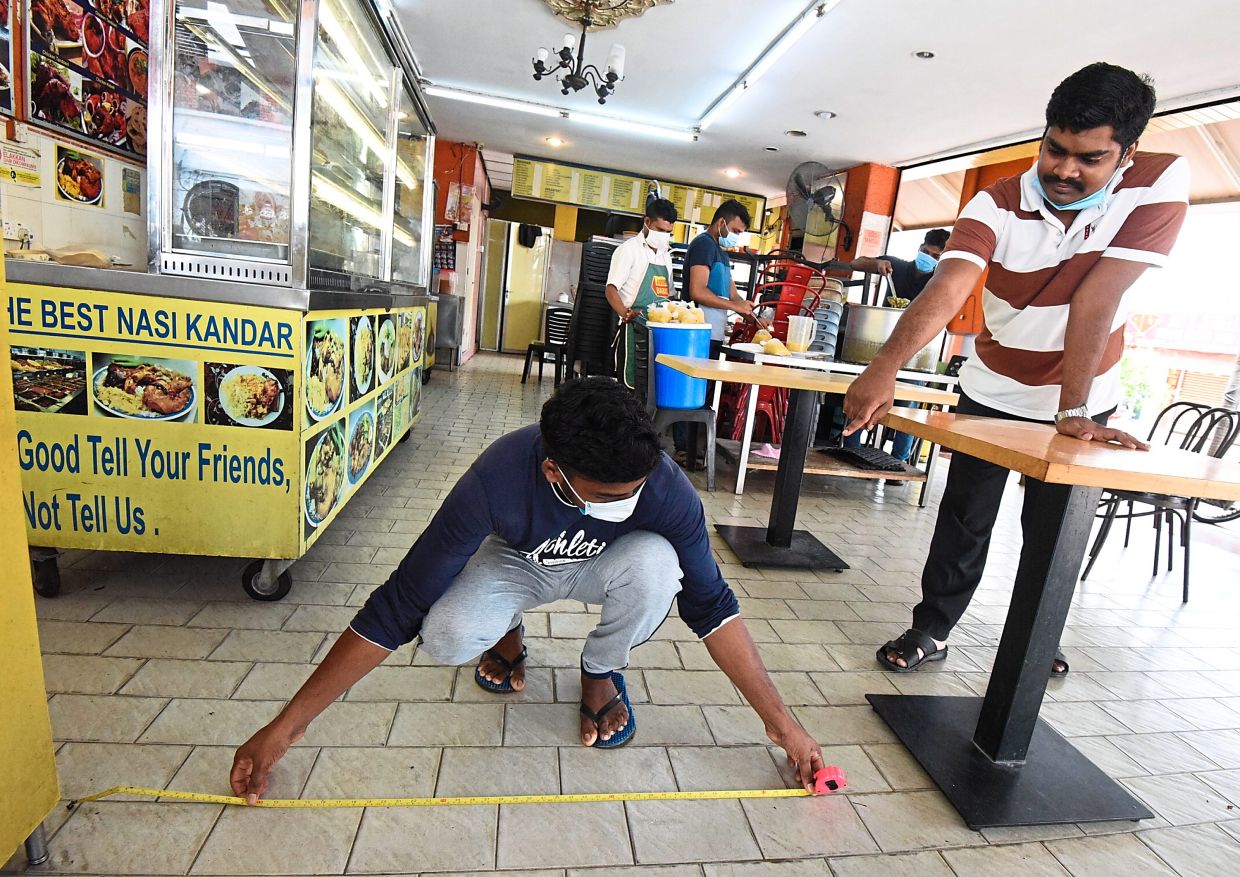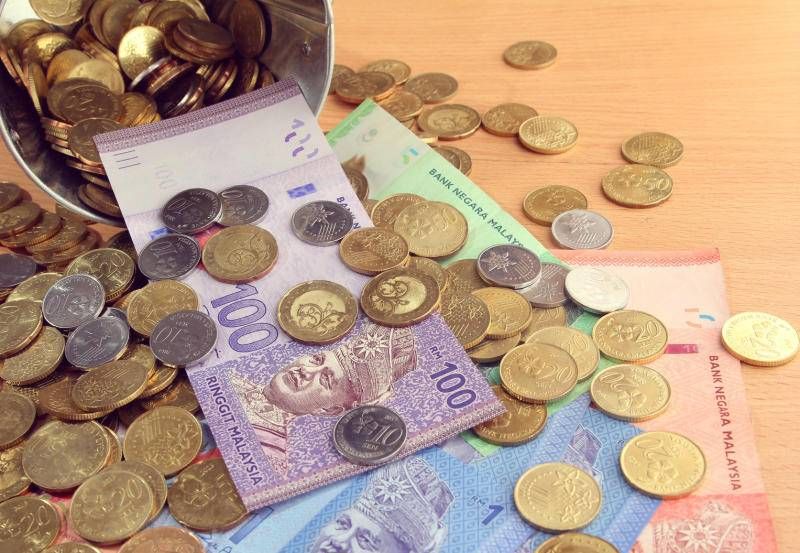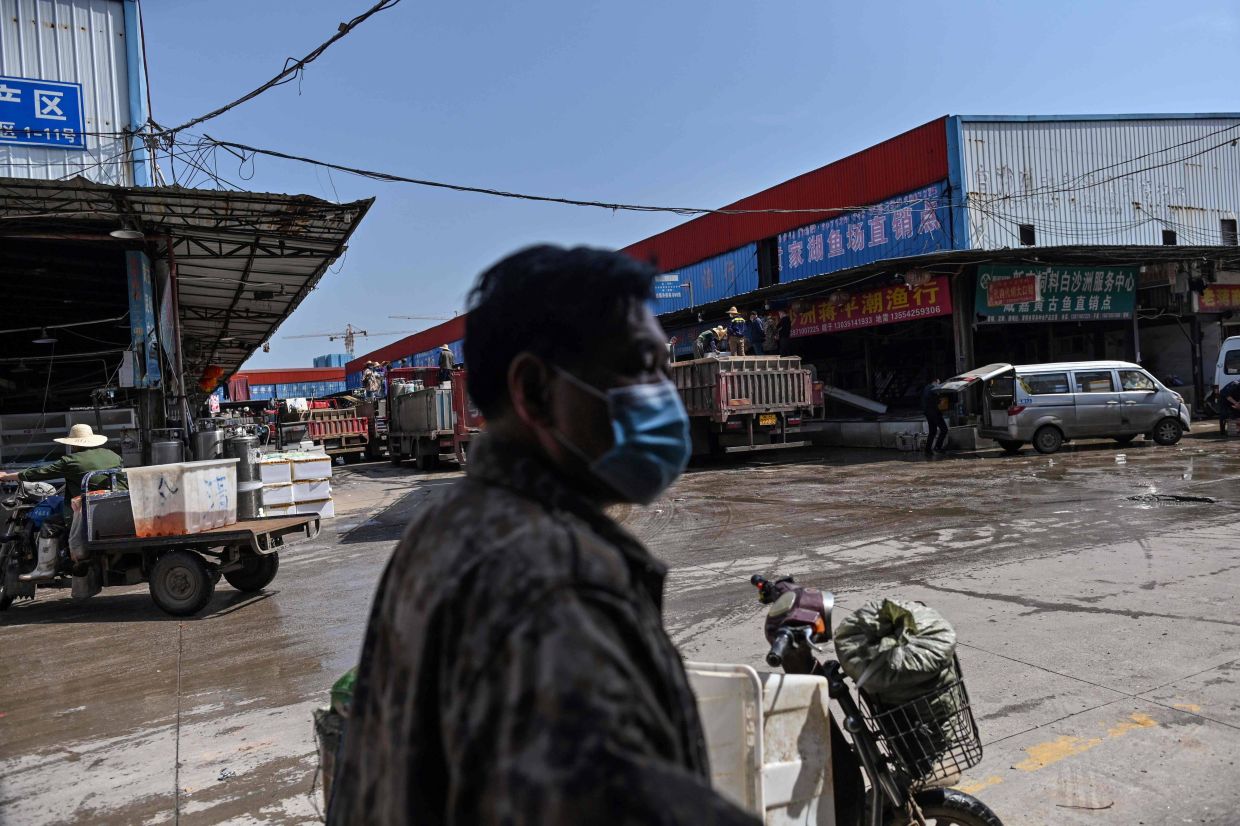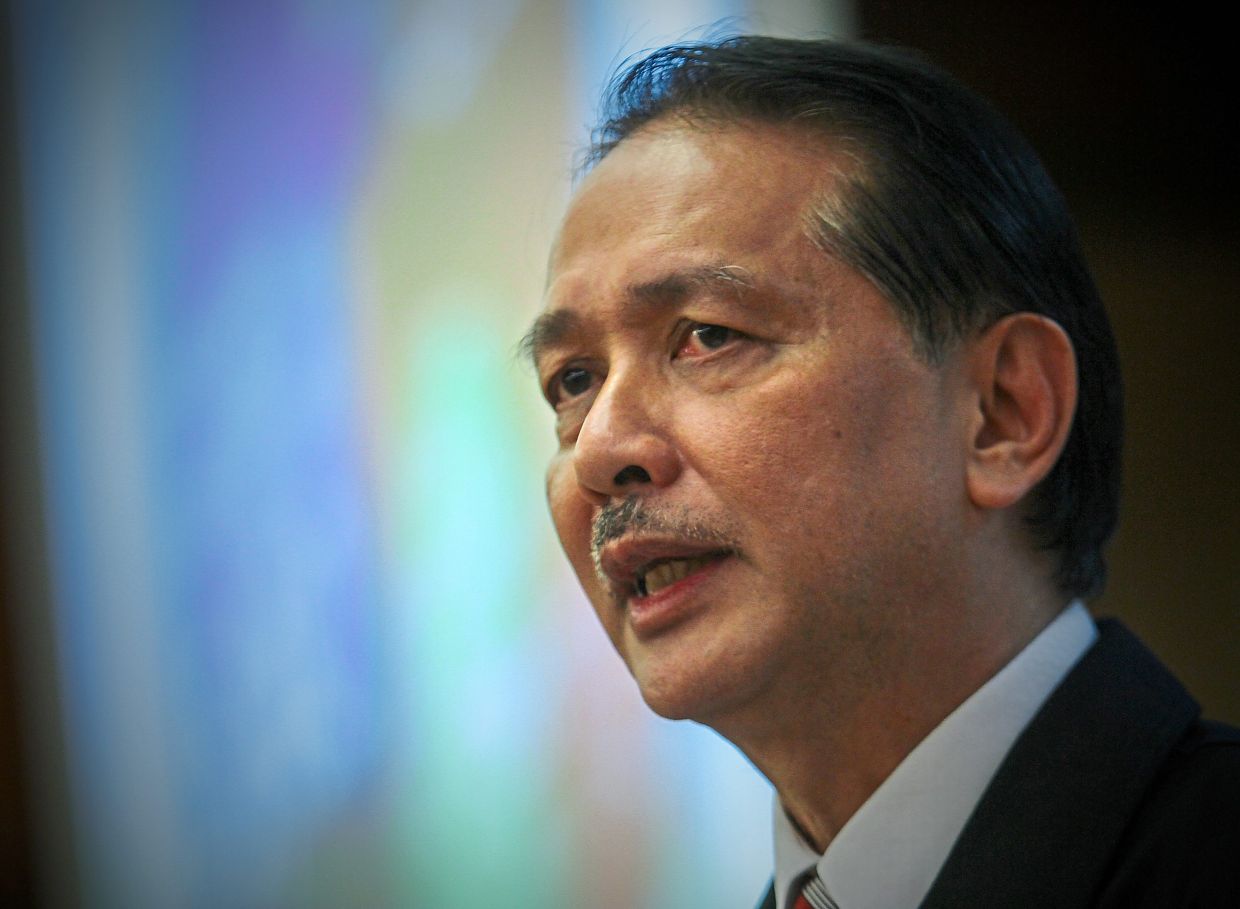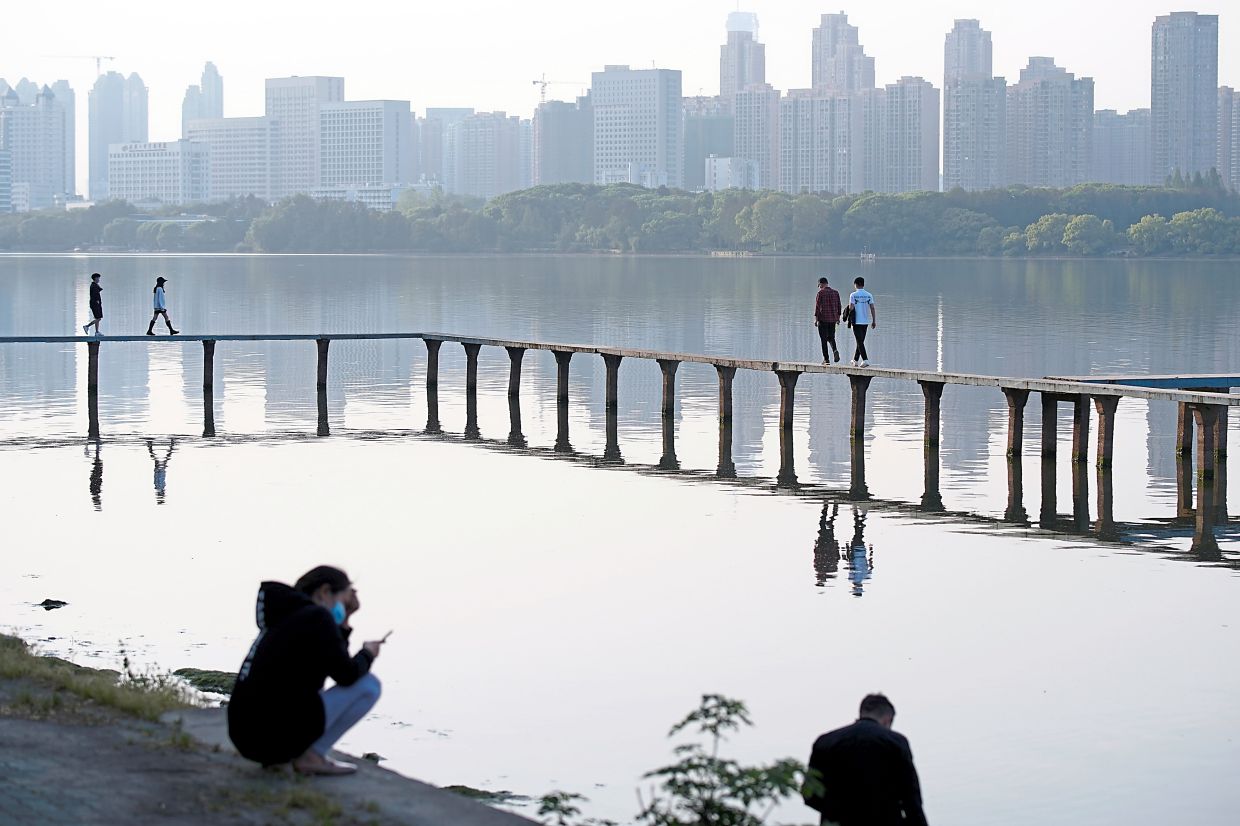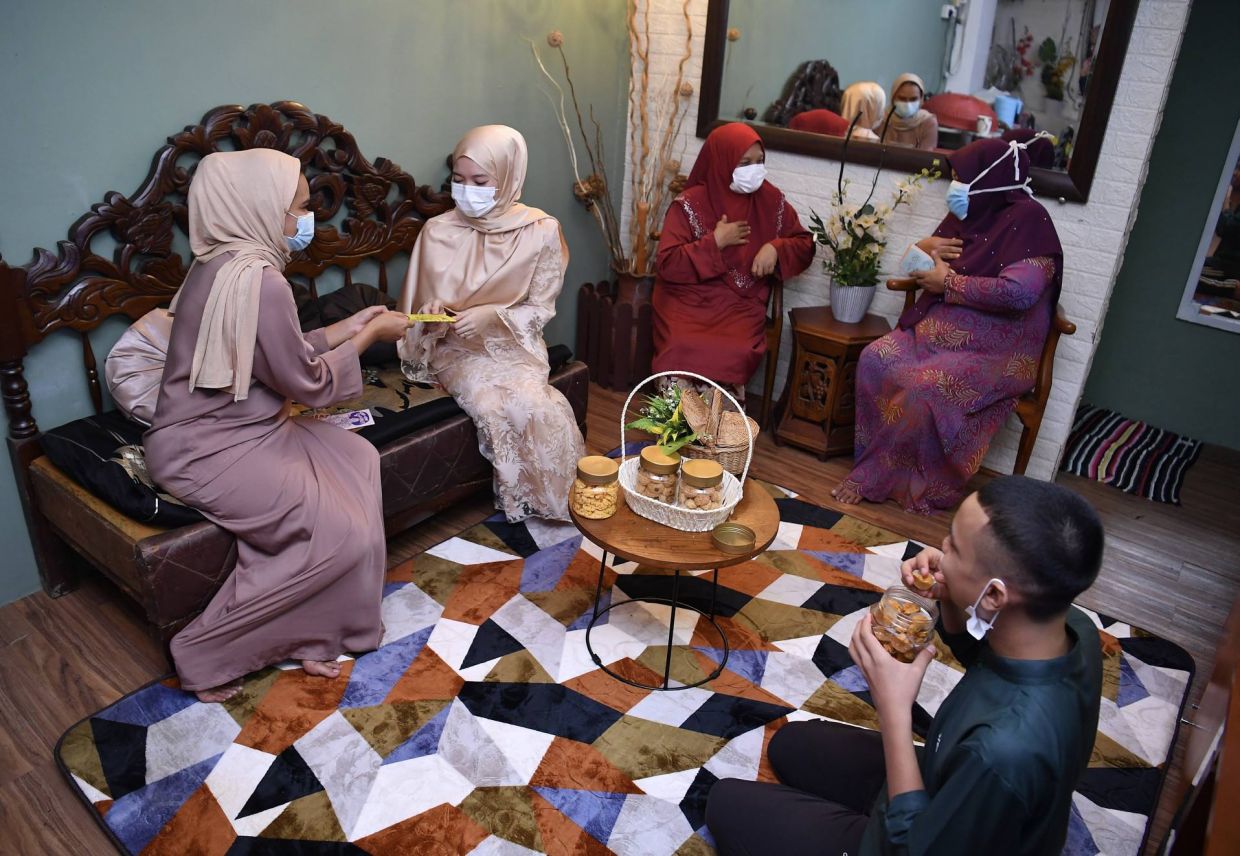
Though marked with muted pomp this year, Hari Raya will still instil the spirit of the festive season for Muslims and the rest of Malaysia.
THIS is surely the most unusual Hari Raya, with many of my Muslim relatives and friends unable to join their loved ones at the family home. This is a Hari Raya with no balik kampung, basically.
Even if they are at home with family, there will neither be open houses nor visits to other homes to take in the festivities.
The past week, recently reopened shopping malls in the Klang Valley remained near deserted and practically devoid of Raya decorations.
Even the melodious Raya songs have vanished from the air. Sudirman’s evergreen Balik Kampung seems incongruous with the ban on interstate travel.
The streets in the city and its surroundings are bereft of the decorative lights which have always brightened the festive mood.
I’ve sorely missed the buka puasa feasts and Ramadan bazaars which never fail to bring Malaysians together.
Over the past two days, while conveying Raya greetings, I learnt that many of my Muslim friends are celebrating alone since they’re unable to make that much desired and customary annual trip home.
Many of these singles are maintaining a brave front and have even conspired to cook Raya dishes themselves for the first time.
They have sportingly sent me pictures of their efforts, though some confess that their experiments may be better visually than gastronomically.
But as much as they miss their ageing parents, many have advised their siblings and friends against visiting them, in case they unwittingly contract and pass the dreaded coronavirus to their loved ones.
Every Hari Raya message now ends with the de rigueur “Stay Safe” advice, following the traditional Maaf, Zahir Dan Batin, which translates to requesting forgiveness for physical and emotional misconduct.
This festival isn’t just for celebrations but also a time to seek atonement for sins committed through words, thoughts, deeds and actions, done wittingly or otherwise. So this is the best time to ask for forgiveness, which is the most beautiful part of this festival.
Above all else, though, this season is also perfect for saluting the frontliners who’ve had to continue working during Hari Raya. It’s a testament to their dedication that many have been working since the movement control order (MCO) period began on March 18.
When I took my mother-in-law for a Covid-19 test on Friday at a hospital, in preparation for a minor procedure, I chatted with some of the Muslim nurses and doctors. They said they would be back at the hospital to continue working tomorrow.
Likewise, our policemen, soldiers, firemen, Immigration and Custom officers, Rela volunteers, council enforcement officers and non-governmental organisation workers who will be out on the streets while other Malaysians celebrate in their own ways.
Their hard work and heroic efforts in fighting the pandemic have earned worldwide recognition and praise.
Yes, brickbats are par for the course too, especially from those who look down on Malaysia and its work, ignorantly believing that anything Western is always superior.
These are the sceptics of daily infection reports, those who question Malaysia’s reasons for not testing its 32 million population yet who have also barely raised an eyebrow over why China isn’t doing the same for its 1.43 billion people.
Unfortunately, it’s simply not possible and is, in fact, a waste of resources because tests should be done on a targeted basis.
It’s lame and pathetic that there are people questioning the motives of a video by an American dentist lauding the Malaysian government’s response to the Covid-19 outbreak. Dr Dustin Pfundheller had to refute allegations that he was paid to produce the video, which has spread across the world.
In fact, he isn’t the only foreigner who has applauded our country for its efforts in battling the pandemic, since many scientists have documented Malaysia’s success in academic journals.
A US academic who was here during the MCO period, has praised our response to the spread of Covid-19. Dr Jason Hassenstab, an associate professor of neurology and psychological and brain sciences at Washington University, Missouri, said the United States could emulate measures adopted by other countries, including Malaysia.
More importantly, in an online survey supported by Universiti Kebangsaan Malaysia involving 4,850 Malaysians conducted between March 27 and April 3, most of the respondents viewed positively the successful control of Covid-19, with an 83.1% approval rate.
The study found Malaysians had confidence in the health authorities’ ability to combat the disease (with a 95.9% rate) and the way in which the Malaysian government is handling the crisis (reflected by an 89.9% approval rate).
The survey also found that Malaysians had adopted safety measures, where “most participants were also taking precautions such as avoiding crowds (83.4%) and practising proper hand hygiene (87.8%) in the week before the movement control order started. However, the wearing of face masks was less common (51.2%).
“This survey is among the first to assess knowledge, attitudes and practices in response to the Covid-19 pandemic in Malaysia. The results highlight the importance of consistent messaging from health authorities and the government, as well as the need for tailored health education programmes to improve levels of knowledge, attitudes and practice.”
The report, “Public Knowledge, Attitudes And Practices Towards Covid-19: A Cross-Sectional Study In Malaysia” was written by Arina Anis Azlan, Mohamed Rezal Hamzah, Tham Jen Sern, Suffian Hadi Ayub and Emma Mohamad, in PLOS ONE, an internationally-reputed peer-reviewed open access scientific journal published by the Public Library of Science in the United States.
The extensive report, which was published on May 21, was edited by Wen-Jun Tu from the Chinese Academy of Medical Sciences and Peking Union Medical College of China.
The results overwhelmingly indicate that Malaysians have strong belief and trust in the work of Health Ministry director-general Datuk Seri Dr Noor Hisham Abdullah and his team of medical staff who have worked tirelessly from day one.
We believe in all of you. Thank you!
As Malaysians celebrate this auspicious day, I wish to dedicate this column to all the frontliners who continue keeping us safe.
To all Muslims, Selamat Hari Raya, and Maaf, Zahir Dan Batin. And Stay Safe, too.


